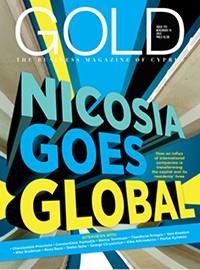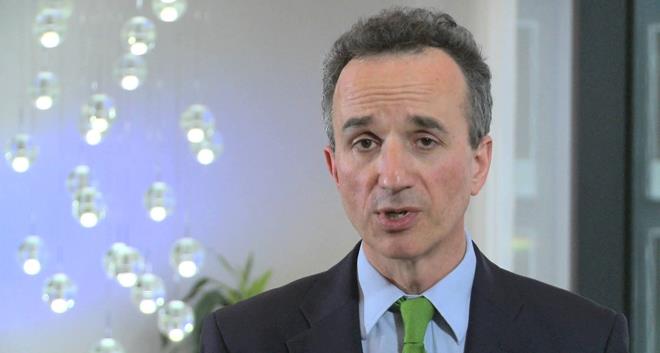A referendum on the UK's membership of the EU is due to take place by the end of 2017. The vote seems most likely to take place next year, either in June or September. A 2016 referendum offers the advantage of reducing the period of economic and political uncertainty facing the country; it also avoids the risk that the Britain's role in Europe would become an issue in general elections in France in March and April of 2017 and in Germany in September 2017.
So, with a UK referendum possibly just over six to nine months away, what do the opinion polls show?
UK voters have consistently been among the most euro-sceptic in Europe. Nonetheless, in the last 40 or so years the UK public has been more likely to support staying in the EU than leaving. Since Ipsos MORI started polling on this issue in 1977 on average 53% of voters in a simple yes/no poll have supported membership and 47% have opposed it. The yes vote reached a low of 26% in 1980 rising, over the following decade, to a peak of 63% in 1991, shortly before the pound's ejection from the European Exchange Rate Mechanism.
In June of this year Ipsos MORI showed UK public support for the EU, again on a straight yes/no poll, at an all-time peak of 75%. Since then it has fallen away in parallel with heightened UK public concerns about immigration. The most recent Ipsos MORI poll, from mid-October, showed the yes vote at 59%.
More recent polls suggest a further narrowing of the yes lead. Across eight polls carried out in November the yes vote averaged 52% and the no vote 48%.
The yes vote is, by and large, younger and more affluent than the no. Opposition to the EU rises sharply among the over 40s, an important consideration given that voter turnout is higher among older voters. Conservative voters tend to be more eurosceptic than Labour voters; white voters tend to be more sceptical than non-white voters.
Much will depend on the "don't knows". In polls conducted in the last couple of months the "don't knows" averaged around 15% of all voters, more than enough to tip the vote decisively.
The last referendum on UK membership of what was then the European Economic Community (EEC) was held in 1975, just two years after the UK joined the EEC. The vote was an overwhelming victory for EEC membership, with the electorate voting by 67.2% to 32.8% to stay in.
A 2016 EU referendum is likely to be a tougher sell than the 1975 EU referendum. In an intriguing paper economists David Bowers and Richard Mylles of Absolute Strategies Research (ASR) outline how the political landscape has shifted in the last 40 years.
Bowers and Mylles point out that in 1975 the debate was about membership of a trading bloc, the Common Market. For sure, the commitment to "ever closer union" was in the Treaty of Rome, but in 1975 few in the UK, especially in the yes campaign, paid much attention to it. Since then the EU has grown from 9 to 28 members, expanded into Central and Eastern Europe, created the Single Currency and acquired more characteristics of a federal union. A 2016 or 2017 EU referendum seems likely to have a more political flavour than the 1975 vote, with a focus on the benefits and costs to the UK of a more ambitious, integrated, federal-like Union. This may well prove a tougher sell for the yes campaign than the trade and economic arguments that won the day in 1975.
So, with a UK referendum possibly just over six to nine months away, what do the opinion polls show?
UK voters have consistently been among the most euro-sceptic in Europe. Nonetheless, in the last 40 or so years the UK public has been more likely to support staying in the EU than leaving. Since Ipsos MORI started polling on this issue in 1977 on average 53% of voters in a simple yes/no poll have supported membership and 47% have opposed it. The yes vote reached a low of 26% in 1980 rising, over the following decade, to a peak of 63% in 1991, shortly before the pound's ejection from the European Exchange Rate Mechanism.
In June of this year Ipsos MORI showed UK public support for the EU, again on a straight yes/no poll, at an all-time peak of 75%. Since then it has fallen away in parallel with heightened UK public concerns about immigration. The most recent Ipsos MORI poll, from mid-October, showed the yes vote at 59%.
More recent polls suggest a further narrowing of the yes lead. Across eight polls carried out in November the yes vote averaged 52% and the no vote 48%.
The yes vote is, by and large, younger and more affluent than the no. Opposition to the EU rises sharply among the over 40s, an important consideration given that voter turnout is higher among older voters. Conservative voters tend to be more eurosceptic than Labour voters; white voters tend to be more sceptical than non-white voters.
Much will depend on the "don't knows". In polls conducted in the last couple of months the "don't knows" averaged around 15% of all voters, more than enough to tip the vote decisively.
The last referendum on UK membership of what was then the European Economic Community (EEC) was held in 1975, just two years after the UK joined the EEC. The vote was an overwhelming victory for EEC membership, with the electorate voting by 67.2% to 32.8% to stay in.
A 2016 EU referendum is likely to be a tougher sell than the 1975 EU referendum. In an intriguing paper economists David Bowers and Richard Mylles of Absolute Strategies Research (ASR) outline how the political landscape has shifted in the last 40 years.
Bowers and Mylles point out that in 1975 the debate was about membership of a trading bloc, the Common Market. For sure, the commitment to "ever closer union" was in the Treaty of Rome, but in 1975 few in the UK, especially in the yes campaign, paid much attention to it. Since then the EU has grown from 9 to 28 members, expanded into Central and Eastern Europe, created the Single Currency and acquired more characteristics of a federal union. A 2016 or 2017 EU referendum seems likely to have a more political flavour than the 1975 vote, with a focus on the benefits and costs to the UK of a more ambitious, integrated, federal-like Union. This may well prove a tougher sell for the yes campaign than the trade and economic arguments that won the day in 1975.
















